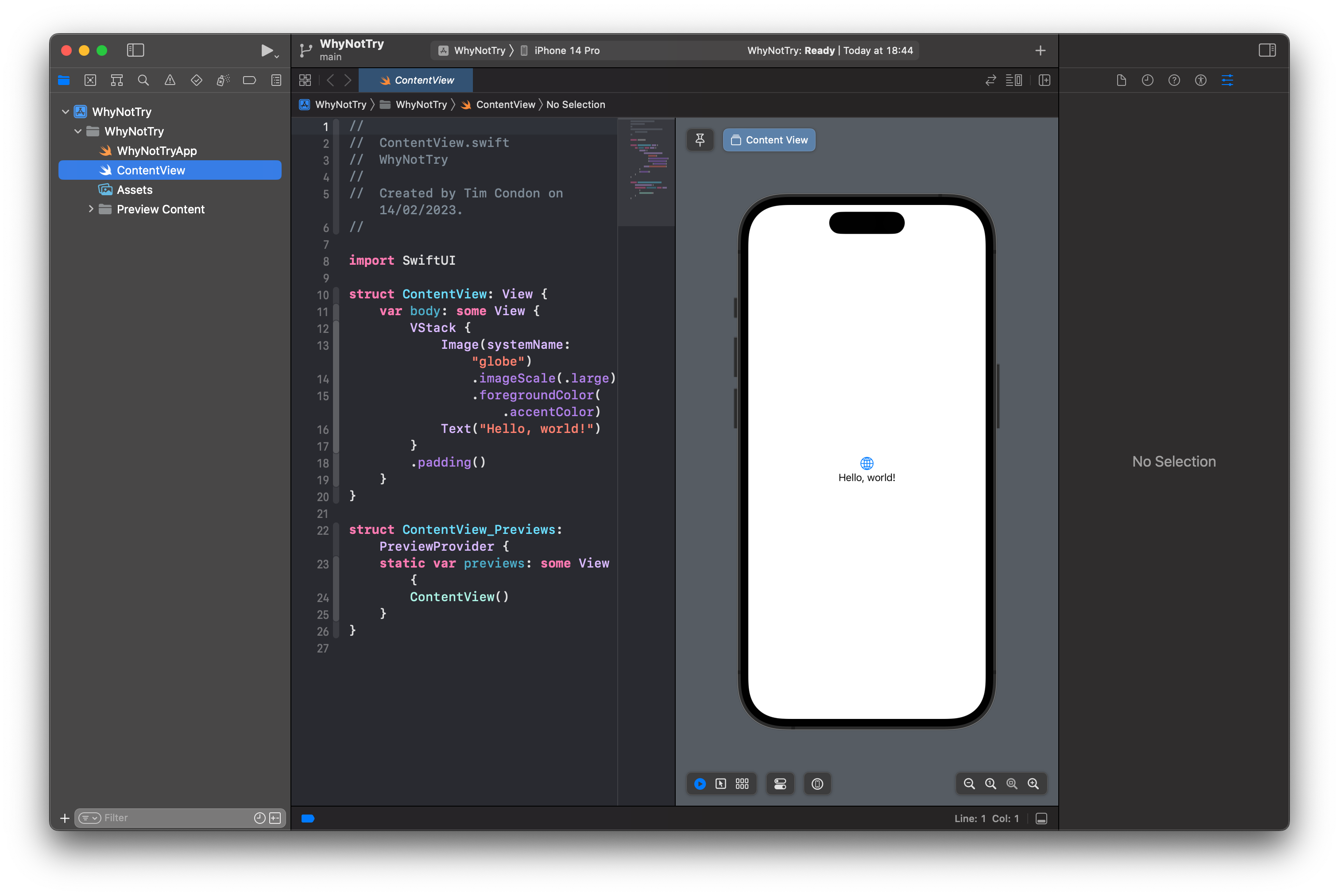When it comes to app development, especially in the Apple ecosystem, Swift has become a dominant force. Launched by Apple in 2014, Swift is a modern programming language designed to make coding faster, safer, and more efficient. Whether you're an experienced developer or just starting your journey, learning Swift can open up a world of opportunities. This article explores why Swift is worth your time, its advantages, and how it compares to other languages like Kotlin.

What is Swift? A Brief Overview
Swift is a programming language developed by Apple for building apps across its platforms, including iOS, macOS, watchOS, and tvOS. It was introduced as a replacement for Objective-C, with a focus on making programming more approachable and less error-prone.
Key Milestones in Swift’s Evolution:
- 2014: Swift was introduced at Apple’s Worldwide Developers Conference (WWDC).
- 2015: Swift became open-source, allowing the global developer community to contribute.
- 2023: Swift continues to evolve, with enhancements that improve its performance, safety, and developer experience.
Swift’s simplicity, combined with Apple’s robust developer ecosystem, makes it a powerful choice for creating seamless, high-performance apps.
Benefits of Learning Swift
Performance
Swift is designed to be fast. By compiling directly into native code, it achieves performance levels comparable to C-based languages. Apple engineers have optimized Swift to run efficiently on all Apple devices, ensuring smooth performance even for resource-intensive apps.
Safety
Safety is a cornerstone of Swift’s design. The language minimizes common programming errors through features like:
- Optionals: Handle null values safely.
- Type Inference: Reduce bugs by automatically detecting data types.
- Error Handling: Simplify debugging with clear error messages.
These features make Swift an ideal choice for developers who prioritize reliability and robustness in their applications.
Simplicity and Readability
Swift’s clean syntax is easy to read and write. For example, compare the verbosity of Objective-C with the streamlined syntax of Swift:
Objective-C:
NSString *greeting = @"Hello, World!";
Swift:
let greeting = "Hello, World!"
This simplicity reduces the learning curve for beginners and allows experienced developers to write code faster.
Interoperability
Swift works seamlessly with Objective-C, enabling developers to integrate legacy code into new projects. This interoperability makes it easier to transition existing apps to Swift without starting from scratch.
Active Ecosystem and Support
As an open-source language, Swift benefits from a vibrant community. Apple’s continuous updates and the contributions of developers worldwide ensure that Swift remains cutting-edge.
Growing Demand for iOS and macOS Development
Apple’s ecosystem is a lucrative market for developers. With over 1.5 billion active Apple devices globally, the demand for iOS and macOS apps is only growing. Businesses prioritize Apple’s platforms due to their high user engagement and profitability.
Why This Matters for Developers:
- Lucrative Opportunities: Apps on the App Store generate significant revenue, with developers earning billions annually.
- Career Growth: Proficiency in Swift makes you a strong candidate for roles in mobile and desktop app development.
- Cross-Platform Development: With Swift, you can expand beyond iOS to macOS, watchOS, and tvOS, broadening your portfolio.
Swift vs. Other Programming Languages
Swift vs. Kotlin
Kotlin is often compared to Swift due to its use in Android development and its modern features. Here’s how they stack up:
| Feature | Swift | Kotlin |
|---|---|---|
| Primary Use | Apple ecosystem | Android ecosystem |
| Performance | Compiles to native code for optimal performance | High performance with JVM optimizations |
| Safety Features | Strong type safety, optionals, error handling | Similar safety features, including null safety |
| Community | Apple’s backing and open-source contributors | Backed by JetBrains and Google, strong open-source support |
Both languages are powerful and prioritize developer productivity, but choosing between them depends on whether you aim to target iOS or Android platforms.
Swift vs. Objective-C
While Objective-C served Apple’s ecosystem for decades, it’s gradually being replaced by Swift. Objective-C is more verbose and less intuitive, whereas Swift’s modern syntax and safety features make it the preferred choice for new projects.
Resources for Learning Swift
Learning Swift is easier than ever, thanks to a wealth of resources tailored to developers of all skill levels. Here are some great starting points:
Apple’s Swift Playgrounds
Swift Playgrounds is a free iPad app that makes learning Swift interactive and fun. It’s perfect for beginners and includes lessons and challenges to build your skills.
Online Courses
- Udemy: Offers beginner to advanced courses like "iOS App Development with Swift."
- Coursera: Features programs like "Swift for Beginners" by the University of Toronto.
- Raywenderlich.com: Known for its high-quality tutorials on Swift and iOS development.
Books
- Swift Programming: The Big Nerd Ranch Guide by Matthew Mathias and John Gallagher.
- iOS Programming: The Big Nerd Ranch Guide by Christian Keur and Aaron Hillegass.
Documentation and Forums
- Swift.org: The official website for Swift’s documentation and updates.
- Stack Overflow: A reliable platform to ask questions and find solutions.
Projects and Challenges
Nothing beats hands-on experience. Start small by building simple apps and gradually take on more complex projects. Platforms like GitHub have repositories with sample Swift projects to explore.
Conclusion
Swift is more than just a programming language; it’s a gateway to developing powerful, high-performance apps within Apple’s ecosystem. Its speed, safety, and simplicity make it an excellent choice for beginners and professionals alike. With the growing demand for iOS and macOS development, learning Swift can set you apart in the competitive tech landscape.
By leveraging the resources and tools available, you can master Swift and embark on a rewarding journey in app development. Whether you aim to create the next big iOS app or contribute to macOS innovations, Swift is your ticket to success.
Explore Further
- A Brief History of Programming Languages
- Programming Paradigms and Innovations
- Interactive Timeline of Programming Languages
We'd Love Your Feedback!
If you have any thoughts, questions, or suggestions about this article, feel free to share them below.